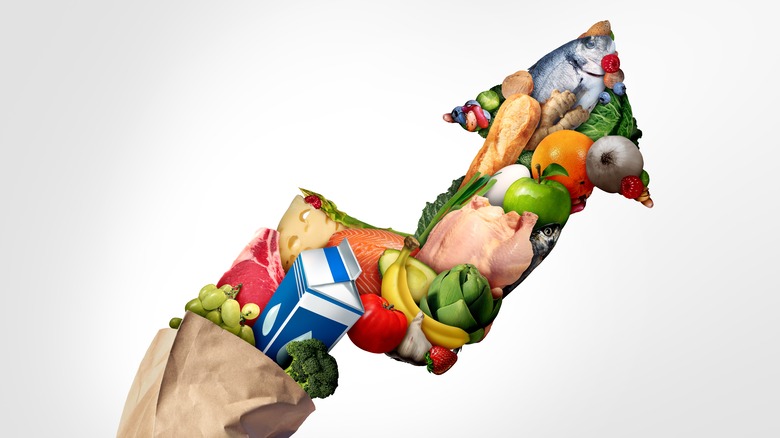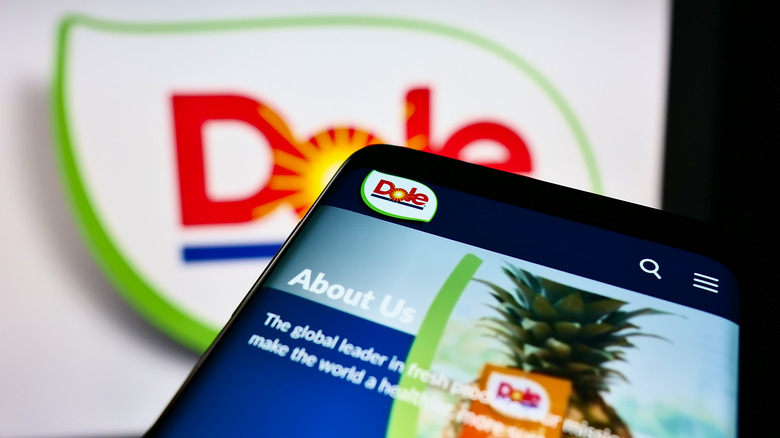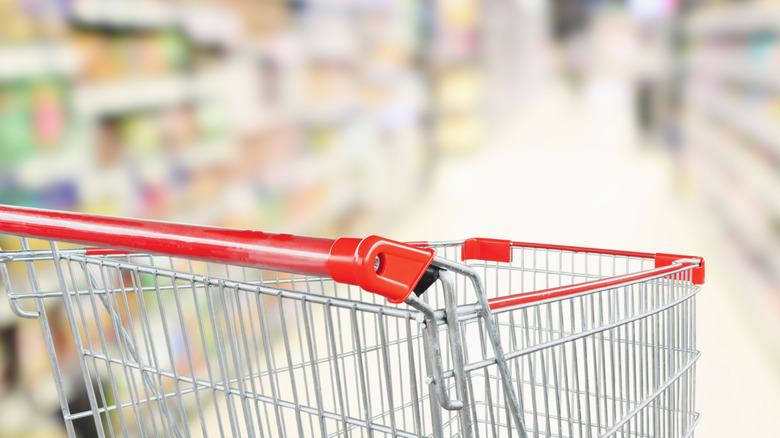Are Consumers Really Adapting To Higher Food Costs?
Inflation stands at a 40-year high, which has translated into gas prices reaching levels a good number of us have likely never seen in our lifetimes. Per CNBC, that's hurting not just consumers who are paying more at the pump, but also businesses that need to transport their goods from warehouses to shelves, as they're feeling the heat, too. Case in point: Target, whose stocks plummeted after it announced lower than expected earnings, and whose CEO Brian Cornell said higher fuel costs will mean an extra expense to the tune of $1 billion "that [Target] didn't anticipate."
And, while retailers like Target have acknowledged that they are feeling the pain of higher costs and a consumer decision to cut back on spending, the same cannot be said of the folks at Dole, which reported "net revenue of $2.2 billion and net income of $3.3 million" for the first three months of this year, per The Packer.
Dole CEO: Consumers 'pretty much adapting to the new prices'
It's not that Dole did not have its own problems — like other producers, the company had to pay more for fuel, as well as for fruits and vegetables, per The Motley Fool. They even faced a recall after listeria was found in their packaged salads across 13 states. Said outbreak sickened at least 18 persons, per Food Safety News.
During their earnings call, Dole CEO Rory Byrne credited their healthy balance sheets to being "pretty successful in getting through price adjustments in that segment of the business." Byrne also said he thought that, "there's a period of adjustment from consumers just generally reacting to having less buying power and how all of the other elements of the economic chain react to that in terms of wage inflation and giving people more buying power, whether it's short term, long term, and the retailers themselves having increased cost basis, trying to adjust and trying to get the balance right between keeping demand for the consumers."
He added that, "there [was] a complex process underway at the moment. In terms of elasticity, no material changes in demand due to neither up nor down the consumers are pretty much adapting to the new prices out there."
Consumers are worried about inflation and its impact
It might be a stretch to assume American consumers are "adapting to new prices," as Byrne puts it. In early March, Ipsos reported, "About nine in ten Americans say they are concerned about inflation... while six in ten say they are very concerned about inflation." At the start of 2022, respondents told Ipsos in a separate survey that consumers were adapting more by eating at home, buying cheaper items, and shopping in places where they feel groceries are handling the spikes in food prices by delivering on better deals. In that same survey, 66% of consumers felt fresh fruits and vegetables — Dole's primary products — cost more.
Consumers are also venting on social media, where one Reddit user said, "This is insane. I don't know how we're expected to financially handle this. Meanwhile companies are posting 'record profits', which means these price increases are way overcompensating for any so-called supply chain/pricing issues on the corporations/suppliers' sides. Anyone else just want to scream?" Another Redditor said, "I'm not sure the reason of such a sudden price hike. With the rising gas and grocery prices, my monthly expenses have doubled with no salary increase in sight."


